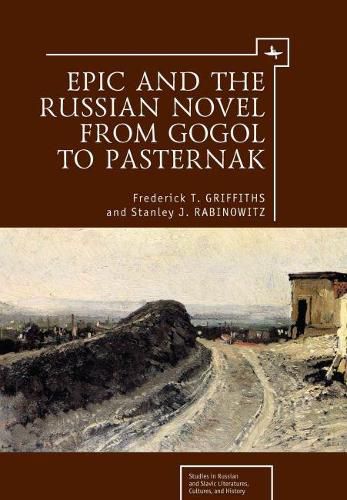Readings Newsletter
Become a Readings Member to make your shopping experience even easier.
Sign in or sign up for free!
You’re not far away from qualifying for FREE standard shipping within Australia
You’ve qualified for FREE standard shipping within Australia
The cart is loading…






Epic and the Russian Novel from Gogol to Pasternak examines the origin of the nineteen- century Russian novel and challenges the Lukacs-Bakhtin theory of epic. By removing the Russian novel from its European context, the authors reveal that it developed as a means of reconnecting the narrative form with its origins in classical and Christian epic in a way that expressed the Russian desire to renew and restore ancient spirituality. Through this methodology, Griffiths and Rabinowitz dispute Bakhtin’s classification of epic as a monophonic and dead genre whose time has passed. Due to its grand themes and cultural centrality, the epic is the form most suited to newcomers or cultural outsiders seeking legitimacy through appropriation of the past. Through readings of Gogol’s Dead Souls-a uniquely problematic work, and one which Bakhtin argued was novelistic rather than epic-Dostoevsky’s Brothers Karamazov, Pasternak’s Dr. Zhivago, and Tolstoy’s War and Peace, this book redefines epic and how we understand the sweep of Russian literature as a whole.
$9.00 standard shipping within Australia
FREE standard shipping within Australia for orders over $100.00
Express & International shipping calculated at checkout
Epic and the Russian Novel from Gogol to Pasternak examines the origin of the nineteen- century Russian novel and challenges the Lukacs-Bakhtin theory of epic. By removing the Russian novel from its European context, the authors reveal that it developed as a means of reconnecting the narrative form with its origins in classical and Christian epic in a way that expressed the Russian desire to renew and restore ancient spirituality. Through this methodology, Griffiths and Rabinowitz dispute Bakhtin’s classification of epic as a monophonic and dead genre whose time has passed. Due to its grand themes and cultural centrality, the epic is the form most suited to newcomers or cultural outsiders seeking legitimacy through appropriation of the past. Through readings of Gogol’s Dead Souls-a uniquely problematic work, and one which Bakhtin argued was novelistic rather than epic-Dostoevsky’s Brothers Karamazov, Pasternak’s Dr. Zhivago, and Tolstoy’s War and Peace, this book redefines epic and how we understand the sweep of Russian literature as a whole.